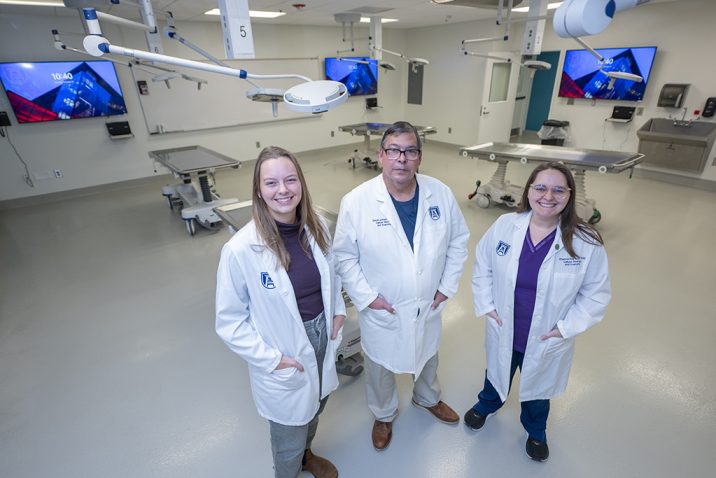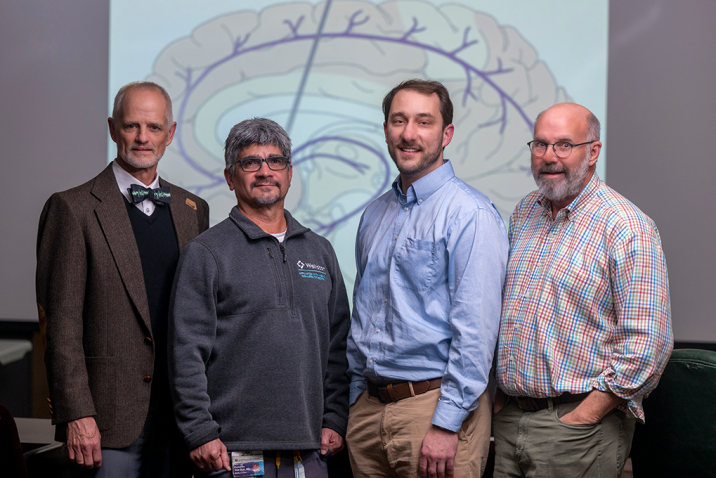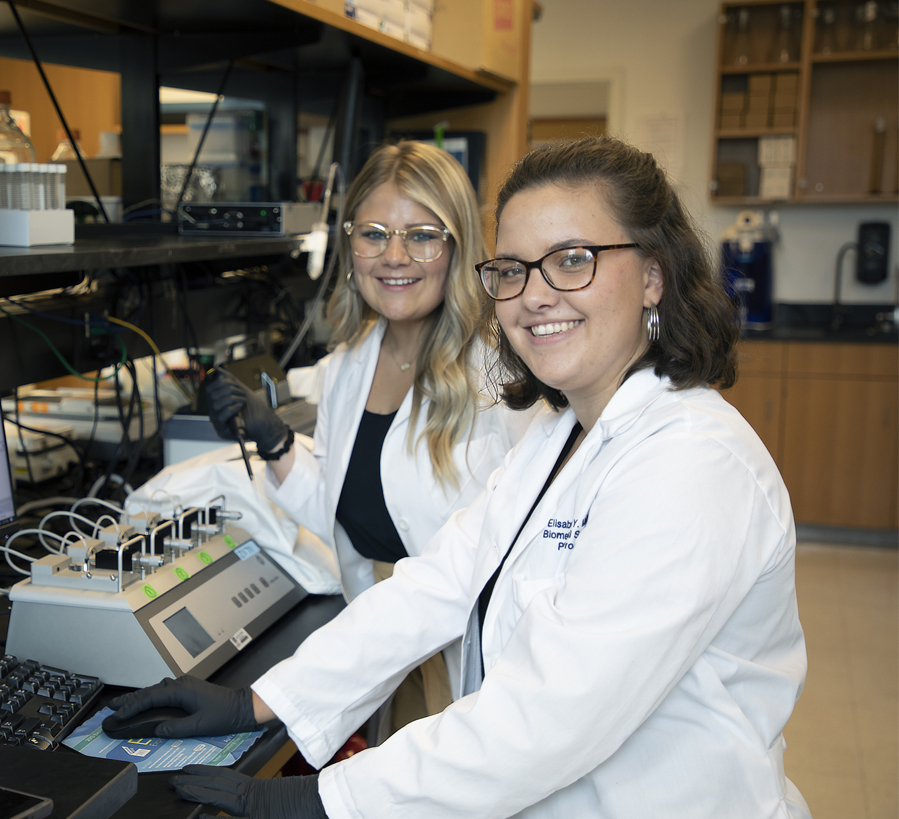Physiology
With a PhD in Physiology, you’ll be highly trained in molecular, cellular and organismal research methods and prepared for a career in academia, industry, or government.
Physiology is for you if you consider yourself
Life-Changing
Life-Saving
Education
Want to learn more about the Physiology program at Augusta University?
Request InfoWhat You'll Study
Coursework
Students are admitted via a common admissions process to the Biomedical Sciences PhD programs. After completing the first-year common core coursework and laboratory rotations, students choose a dissertation research mentor and enter the Physiology program.
The average time to complete the degree is approximately five years of full-time, year-round study.
Curriculum | Admissions Criteria | Tuition and Fees | Application Deadlines



EXPLORE. EXCEL. EXPAND.
Graduate School Advantage
Augusta University's graduate programs are among the best in the nation – and the world – and our graduate students are our most valuable assets. To ensure that our students earn more than a degree, the Graduate School offers a range of opportunities so they can develop the leadership, communication and personal skills needed for a rewarding life and academic, research or professional career.
See what the Graduate School has to offer »
About the Graduate SchoolExperience-based Education
Outside the Classroom
Collaboration is a cornerstone of our program where you'll join a vibrant community of fellow researchers. Departmental seminars and workshops keep you at the forefront of the latest advancements in physiology, while opportunities to present your research at regional and national conferences allow you to gain valuable experience and recognition from your peers.
Augusta University's Physiology PhD program is committed to your professional development. We offer workshops and mentorship programs to help you cultivate essential skills like grant writing and scientific communication. The program also fosters strong professional networks with faculty and peers, opening doors to exciting research opportunities after graduation.
Student Success
Since 2018, students have received over 50 professional awards have co-authored over 40 manuscripts.
High Profile
Students and faculty regularly present at important scientific meetings and successfully compete for extramural funding.
Important Research
The high impact cardiovascular, renal and metabolic research conducted by faculty and students is having a positive impact on lives in Georgia and across the globe.
Recognized Faculty
Physiology faculty are well known, well-funded and widely published in some of the most important research journals in the world.
Your Future
Career Options
Graduates with a doctorate in Physiology can work as biomedical researchers in a variety of different settings, including academia, pharmaceutical companies, medical centers or biomedical research firms.
According to the U.S. Bureau of Labor Statistics, the median pay for a medical scientist is $100,890. The job outlook is expected to grow much faster than the average.
Profiles
Student Stories
I chose this program because of the collaborative nature and the overall environment. I could tell from my first day here that they want to encourage and teach their students and that they truly care about each one succeeding in their chosen career goals.
Katie Ann Fopiano
My program is just the right size for what I need. I never feel overwhelmed or deficient. It is just perfectly sized to ensure very close contact with professors and any facilities.
Desmond Moronge
Admissions Criteria at a Glance
GPA: Overall GPA of 3.0 on a 4.0 scale at the Baccalaureate level calculated on all undergraduate work.
Degree Requirement: Minimum of a Bachelor’s degree or equivalent from an accredited college or university.
Transcripts: Official transcripts are required from all universities and colleges ever attended. Unofficial transcripts from US colleges and universities can be used in the admissions review process in lieu of official transcripts for this program.
Standardized Test Requirements: None are required for this program.
Letters of Recommendation: Recommendations from three individuals must be submitted through the application portal.
Resume: Applicants must submit a resume or curriculum vitae within the application portal.
Research Experience: Research experience is required for admission. Within the application, you will be prompted to provide both personal and research statements. Please consult the application for the full statement prompts.
International Students: Please review the verification process for international transcripts and the english proficiency requirement.
Tuition & Fees Estimate
$4,801*
Estimated total
Full-time / In-State / Per Semester
$401
Tuition Per Hour
$675
Mandatory Fees
View Detailed Program Tuition
*Tuition & Fees listed here are for in-state students enrolling in the university for Fall 2025 semester.
Detailed Program Tuition InformationApplication Deadlines
Fall '26 International Deadline**
- December 1, 2025
Fall '26 Deadline
- December 1, 2025 - extended to December 15, 2025
Early submission of all application materials is strongly advised.
All required application materials and documents must be received in order for an application to be considered complete and before an admission decision can be made. The program does not accept applications after the published application deadline, however the program will continue to accept application materials up to 2 weeks after the application deadline.

Why Augusta?
With 90% of graduates moving on to postdoctoral positions in high profile research institutions, you’ll have a large network of potential research collaborators who share the same DNA.
As part of one of the leading Physiology programs in the nation, you’ll have access to internationally recognized faculty mentors who will help you develop your research skills in a broad range of high impact translational research areas.
The highly collaborative research environment ensures you’ll emerge from the program prepared for a career in academia, government or industry.

Families leave lasting contribution to medical science with body donations
Families leave lasting contribution to medical science with body donations
MCG starts human trials on deep brain stimulation for Alzheimer’s patients
MCG starts human trials on deep brain stimulation for Alzheimer’s patients

